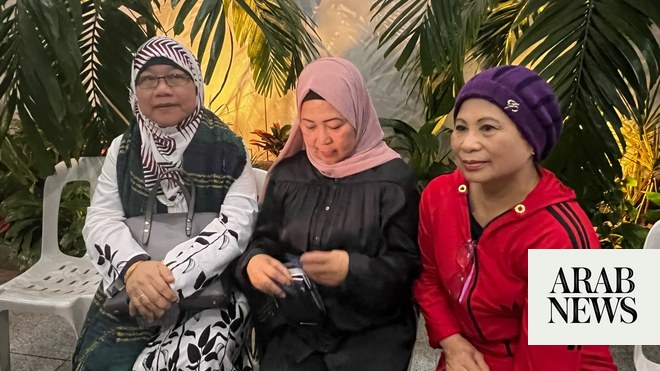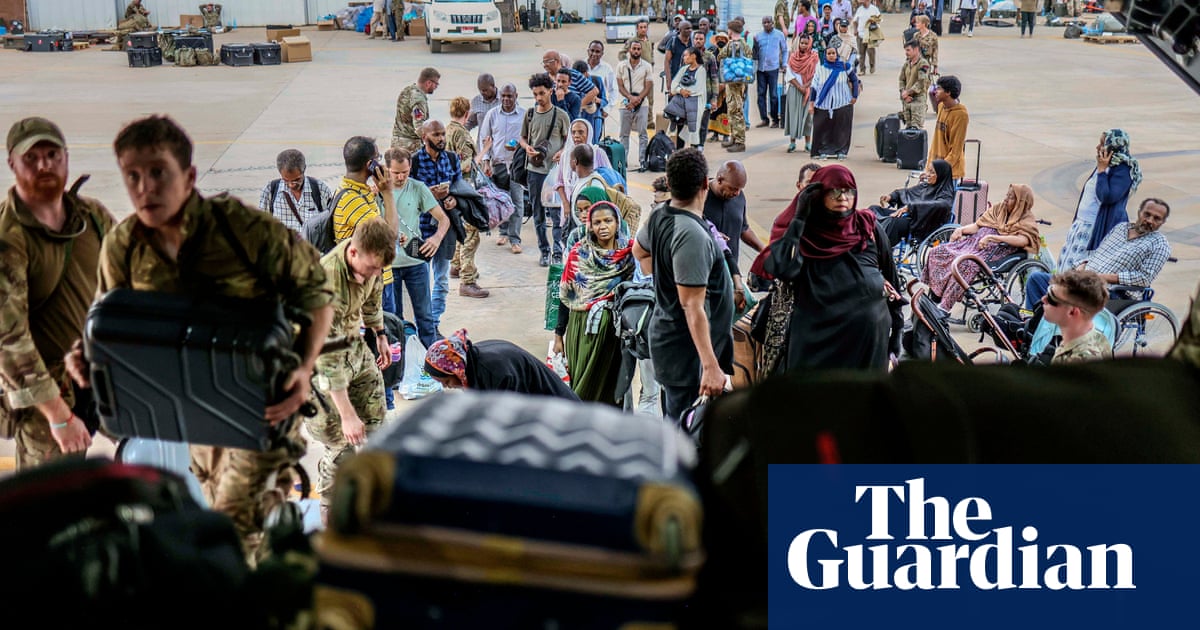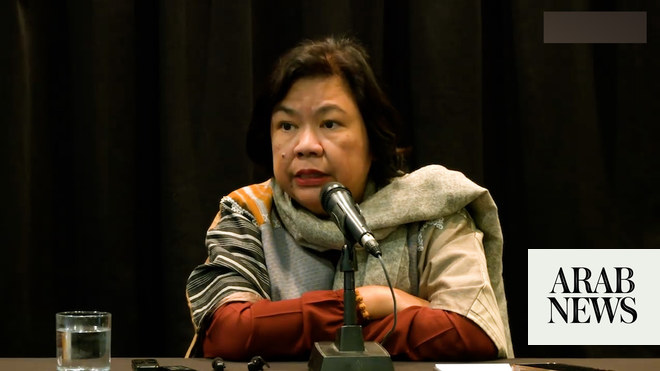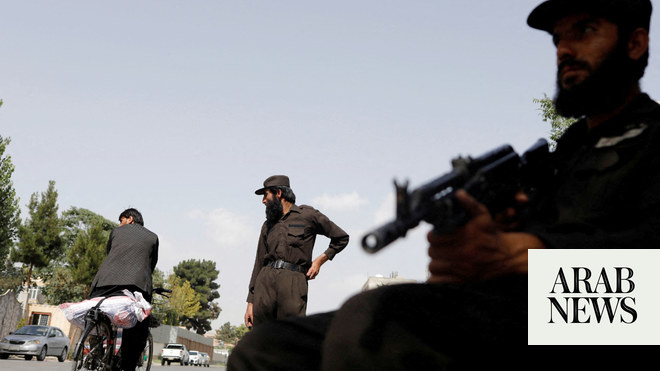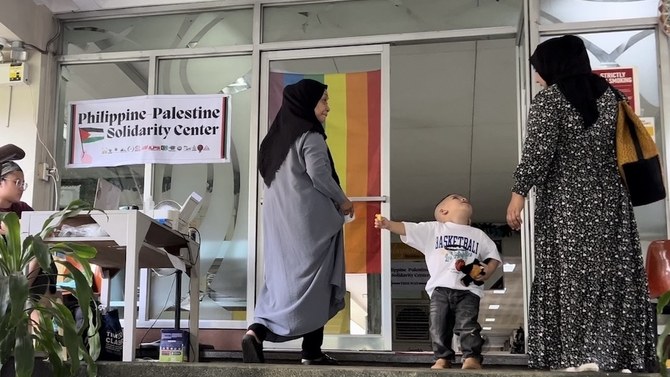
116 Filipinos from Gaza were flown by the Philippine government to Manila
Several days after arrival they were left to their own devices
MANILA: Revelina Cargullo was one of the first Filipinos evacuated from Gaza and brought to Manila last month. When she and her family arrived in the Philippines, authorities arranged a hotel for them for three days, after which they were left on their own.
Of the 137 Filipinos who were living in Gaza when Israel began its bombardment of the enclave in October, over 116 were flown to the Philippines — some, like Cargullo, alongside their Palestinian spouses.
The have left everything behind. They were displaced from their homes by deadly Israeli strikes that have since killed at least 20,000 people and destroyed more than half of the enclave’s infrastructure. And then, they left Gaza altogether when they returned to the Philippines.
“We are thankful to the government for bringing us home, for saving us from the war.
But it is hard (for) us to come home without money and (with) nowhere to stay,” Cargullo told Arab News, as she was preparing to move to a third place since reaching Manila.
When the first Filipino-Palestinian families arrived in the Philippines, they were greeted at the airport by government officials and in addition to cash aid handed to them by the Philippines Embassy in Egypt, they received extra support from the Department of Social Welfare and Development and were housed in hotels.
But a few days later they were on their own.
“When we were sent home after leaving Gaza, we were told that we will be taken care of when we get home,” said Cargullo, 61, who arrived in Manila with her Palestinian husband and children.
“Our embassy in Cairo gave us $1,000 from the government and it was also the government that shouldered our airfare. Then we got here the Department of Social Welfare and Development also gave us 20,000 pesos ($360) per family.”
Most of the Filipinos in Gaza are permanent residents. Two-thirds of them are Palestinian-Filipinos born or raised there.
After living in Palestine most of their lives, not all of them still had relatives in the Philippines, and if they did, not all of them had the means to help.
“Many of these families, they don’t really have family here anymore or they don’t have the capacity to help them,” Rev. Allan Sarte, a pastor who serves as secretary-general of the Philippines-Palestine Friendship Association, told Arab News.
The association stepped in and helped organize help with other civil society groups when they learnt that 13 families of evacuees had nowhere to go.
The groups created a task force that included representatives of Muslim and Christian organizations, Migrante International — an alliance of overseas Filipinos — and the University of the Philippines, which housed the evacuees for the past few weeks.
On Thursday, they moved to flats, where they will stay for a while.
“We could really feel their trauma, we could see their trauma. But after a month or more, they’re now okay,” Sarte said.
“They were transferred yesterday to an apartment complex inside a subdivision in Cainta, Rizal, just outside Metro Manila. The task force also shouldered the initial and advanced payment for their rent ... We are still looking for a long-term housing for them.”
Sarte said that while the task force was looking for employment for the evacuees, “the future is still bleak for them” and urged the government to be there for the people it took responsibility for.
“Help is beginning to come in from private people, but ... this is the primary responsibility of the government. The government should take care of them because they are Filipinos,” he said.
“Aside from merely expatriating them I think you have to help them especially with the legal documents that they need so they can find work, so they can normalize somehow their lives here.”
For the Department of Foreign Affairs its task ended when the evacuation process was completed.
“Now it is up to other government agencies, including local government units and private contributors,” Undersecretary Eduardo de Vega told Arab News on Friday.
“But DFA is coordinating with other agencies on this.”
Sarte was hopeful that authorities will take action and as Christmas is approaching, he remembered the story of another Palestinian family, which two millennia ago was looking for shelter in Bethlehem.
“When we remember how Mary and Joseph at first had no place to stay, in that spirit we are also calling on you and our friends, brothers and sisters if we can extend help to these brothers and sisters here who also have no place to stay,” he said.
“These are refugees, these are people fleeing from war.”




